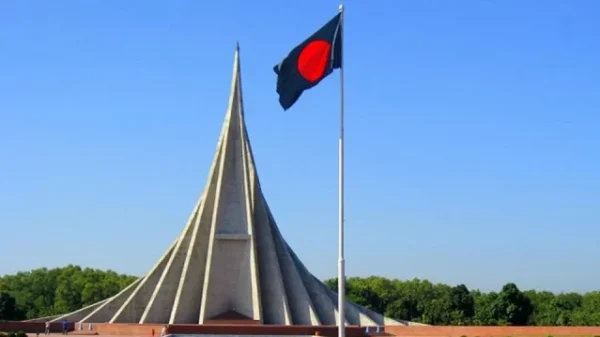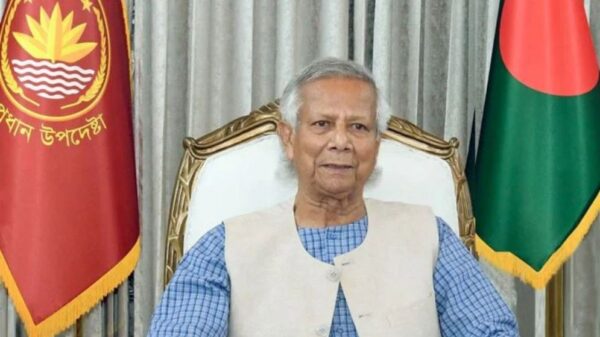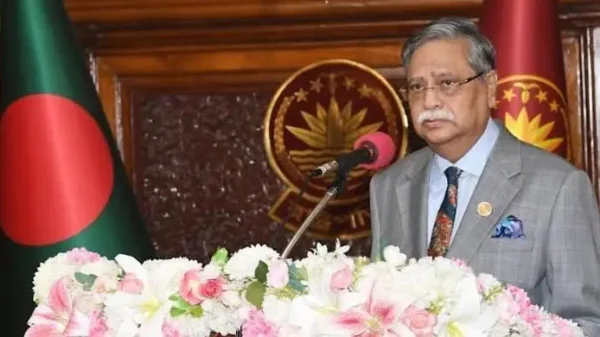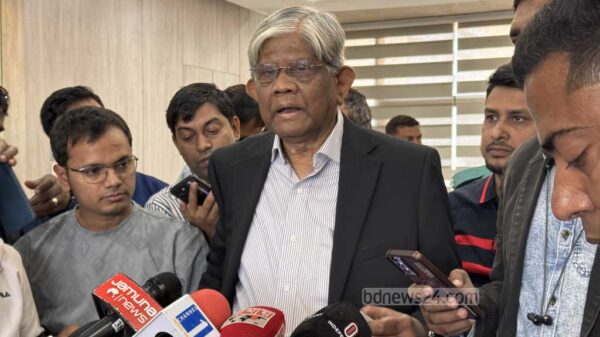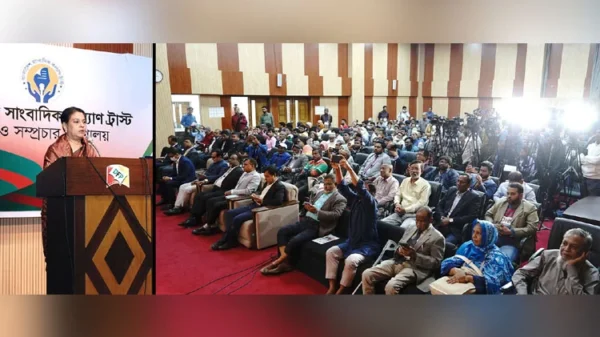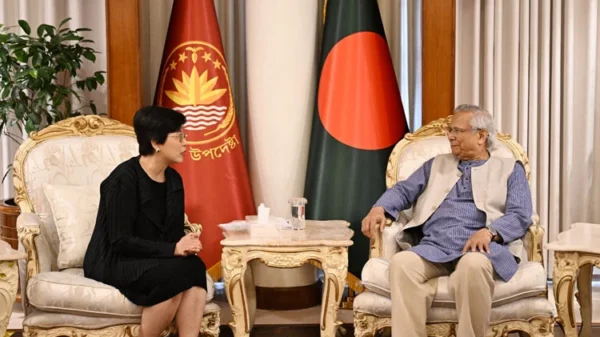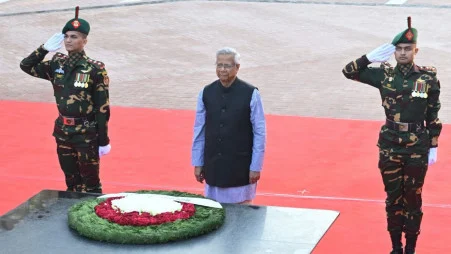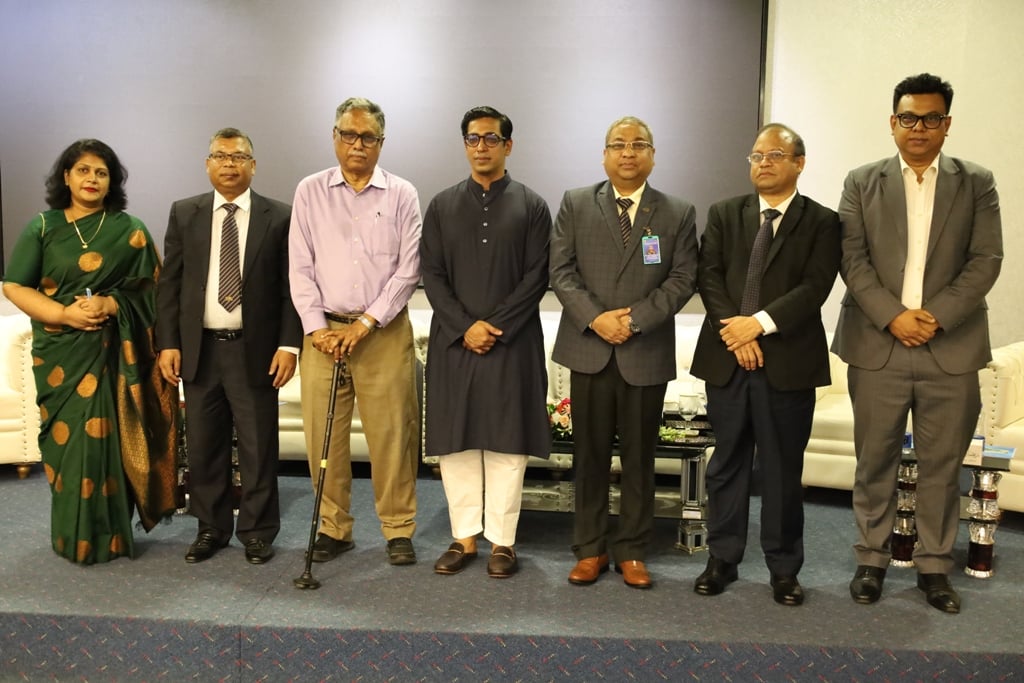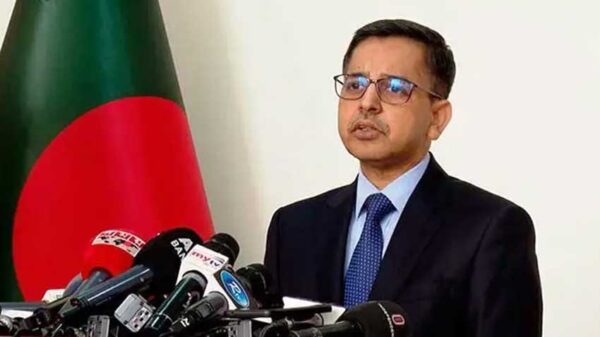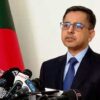Staff Reporter:
Experts yesterday said Bangladesh needs to improve its fiscal space and pursue grant-based or conces-sional climate assistance, as well as renegotiate and restructure its existing development loans aiming to address the climate change impacts.
They came up with the observations while speaking a national seminar titled “Bangladesh’s Climate Re-silience and Financing: Challenges, Opportunities and Way Forward” organized by Bangladesh Institute of International and Strategic Studies (BIISS) at its auditorium here.
Lawmaker Nahim Razzaq, Convenor of Climate Parliament Bangladesh and Member of Parliamentary Standing Committee on the Ministry of Foreign Affairs, graced the programme as chief guest.
Dr Ainun Nishat, Professor Emeritus at BRAC University, was present as special guest while BIISS Di-rector General Major General Md Abu Bakar Siddique Khan delivered the welcome address.
Three presentations were delivered at the national seminar, a BIISS press release said.
Dr Sufia Khanom, Senior Research Fellow of the BIISS, delivered a presentation on “Financing for Climate Resilience: Context and Issues”; while a presentation on “Case Studies/Best Practices for Innova-tive Financial Mechanisms” was made by Shaikh Muhammad Mehedi Ahsan, Country Representative, IUCN and General Secretary Bangladesh Institute of Planners (BIP).
Dr Mohammad Abu Yusuf, Additional Secretary, Finance Division, Ministry of Finance, made another presentation on “Innovative Financial Mechanisms”.
An open discussion took place after their deliberations. Ambassador AFM Gousal Azam Sarker, Chair-man of BIISS, moderated the session and wrapped up with his remarks.
The speakers said Bangladesh is listed globally as one of the most vulnerable countries to the impacts of climate change, while the country’s vulnerability to climate change is largely attributed to its geography, which makes it particularly susceptible to natural disasters and rising sea levels.
A dense population, dependence on agriculture for livelihood and, weak adaptation capacity adds to its vulnerability to climate change impacts, they said.
However, they said, Bangladesh is relentlessly trying to strengthen its adaptation capacity and it has inte-grated climate change into its national legal and policy framework, placing a stronger emphasis on con-servation of the environment, biodiversity, and protection of the people.
Despite its efforts, accessing international climate finance remains a major challenge for Bangladesh, with strict eligibility criteria preventing agencies from qualifying for global climate funds like the Green Climate Fund (GCF), the Least Developed Countries Fund (LDCF), and the Adaptation Fund, the speak-ers said.
Senior officials from different ministries, diplomatic missions and media, researchers, academics, busi-nesspeople, representatives from different think-tanks and international organisations, teachers and stu-dents from various universities participated at the seminar.


